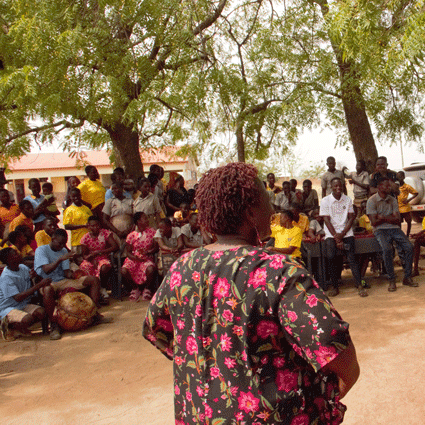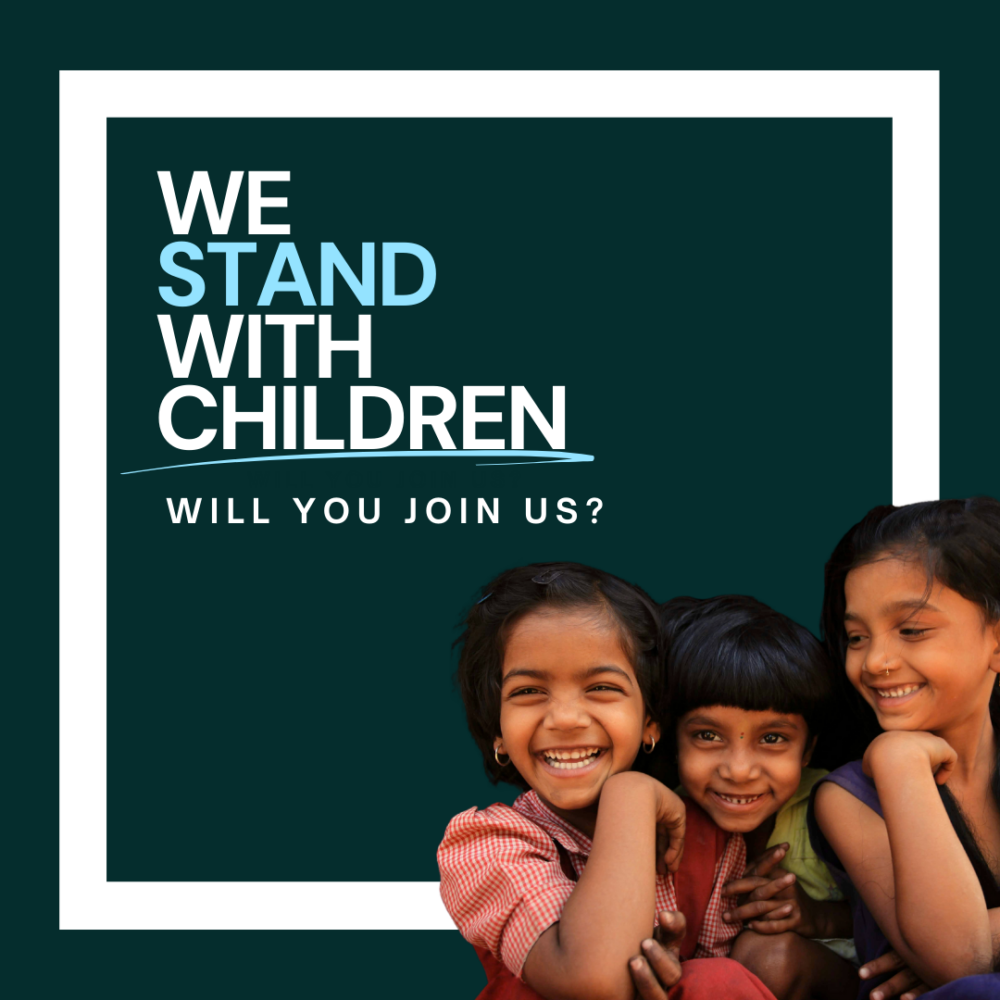
Fostering local leadership: a shared vision for Africa’s growth
Earlier this year, I got to see the work of AfriKids in action. Global Fund for Children and AfriKids both receive funding from People’s Postcode Lottery, but I soon realized we have a lot more in common than just a funder. We share an unwavering passion and deep commitment to contributing to the development of the African continent, grounded in a desire to see it flourish, fully utilize its resources, and secure a brighter future for its people, particularly its youth.
My connection with AfriKids began at the International Education Funders Group (IEFG) Great Grantees Gathering in Accra, Ghana, which brought together funders, development partners, grantmakers, and grantee partners. At this convening, I met AfriKids’ Country Director, David Pwalua, and its Partnership and Resource Mobilization Manager, Mandela Atibila. They also had the opportunity to connect with other GFC partners based in Accra, reinforcing the potential for collaboration and shared efforts.
The following day, we travelled with AfriKids’ other funder, mc2h Foundation, to the northern part of Ghana, where AfriKids works with communities to address critical challenges, particularly around education.
A shared vision for marginalized communities
As we visited communities where AfriKids works, I was struck by the deep alignment between their approach and that of GFC. We both prioritize supporting communities in areas where the needs are most acute. AfriKids has intentionally established its base in the northern part of Ghana, a region with high rates of child marriage, early forced marriages, and limited access to education for girls. While the national prevalence of child, early and forced marriage is 5%, in the three northern regions of Ghana (Northern Region, Upper East and Upper West regions), 34% of girls marry before the age of 15 (Universal Periodic Review of Ghana 4th Session 2023). While I was aware that child marriage is prevalent in West Africa, I was stunned to learn about the high prevalence of abduction in the northern part of Ghana. I had thought abductions only happened in some parts of East Africa.
Similarly, GFC’s work across Africa focuses on supporting community-based organizations in rural, underserved, hard-to-reach areas, which are often overlooked by other funders.
A shared commitment to community-led change
I was impressed by AfriKids’ unwavering commitment to community-driven change, which resonates with GFC’s approach. The visits and interactions with communities, ranging from parents and community leaders to parent-teacher associations, school authorities, teachers, and child protection committees, underscored the importance of placing communities at the heart of efforts to find and implement solutions to their challenges. It was heartwarming to see how AfriKids has been working over the years with communities to address the issue of child, early and forced marriage, and to invest in their girls’ education.
GFC shares this belief that community-driven solutions are crucial for achieving lasting change. As a grantmaking institution, we facilitate and strengthen local initiatives by offering resources, knowledge, and guidance rather than imposing solutions from the outside. We’re committed to enabling communities to lead, ensuring that development efforts are owned, shaped, and sustained by those who are directly affected.
A shared belief in empowering girls
Another standout feature of AfriKids’ work is their unwavering commitment to empowering girls to have agency over their lives and to stand up for their rights. Unlike many local organizations, which confine girls to careers traditionally deemed appropriate, such as soap-making, hairdressing or catering, AfriKids provides girls with the opportunity to access quality education and develop the skills necessary to pursue a broader range of careers. This includes robust support for girls to complete their secondary education and to explore fields traditionally dominated by boys, such as science, technology, engineering, and mathematics. I was deeply inspired by the creativity, innovation, and leadership demonstrated by the girls participating in AfriKids’ programs, many of whom come from disadvantaged backgrounds. They are not only excelling academically but also taking on leadership roles within their communities.
A shared wish to strengthen future collaboration
Several areas for future joint efforts emerged during the trip. One particularly exciting and promising conversation centered around the potential to collaborate around the 2026 Regional Adolescent Girls Summit (AGS). This biannual event is planned and executed by adolescent girls and boys with the support of GFC and its partners. It brings together adolescent girls, particularly from rural and underserved communities across West Africa, to connect, share experiences and unite in their calls for change, fostering solidarity and a collective sense of purpose.
We discussed how the summit will nurture a sense of belonging to a larger movement for gender justice for girls participating in its programs. It will help broaden understanding of shared challenges and learn from the diverse ways in which girls are driving change in their communities.
We also explored opportunities for deeper collaboration between AfriKids and like-minded organisations. Tostan is such an organisation with over 30 years of experience in delivering impactful, community-led initiatives across West Africa. Its model—focused on empowering communities to lead their own development—has served as an inspiration for many GFC partners. There was rich dialogue around how lessons from Tostan’s approach could complement and enhance efforts to improve education, shift social norms, and strengthen community governance in northern Ghana.
A shared excitement for the future
The visit reinforced my belief that collaboration is essential in driving meaningful change. No single entity can create lasting transformation in isolation. The real strength lies in partnerships that bring together diverse actors, each contributing their unique skills, resources, and experiences toward a shared vision of sustainable development. At GFC, we recognize that the most effective strategies are those that build on the strengths of each partner, creating synergies that amplify the work we do, and we’re committed to exploring new and diverse ways to strengthen collaboration with AfriKids for even greater impact.

With thanks and appreciation to:
- AfriKids, for hosting the trip: I was impressed by their thorough and thoughtful preparation, care in ensuring that everyone felt safe, and attention to protecting the children and young people they work with.
- mc2h Foundation, for proposing the trip: I enjoyed getting to know this organization, which has similar values to GFC and shares a commitment to provide flexible funding and support to partners to help them achieve their vision for their communities.
- Players of People’s Postcode Lottery who have been helping GFC transform the lives of thousands of children and young people around the world since 2020. GFC’s work with adolescents in West Africa receives funds through Postcode Education Trust, thanks to funds raised by players of People’s Postcode Lottery and we are deeply grateful to them for supporting this critical work.
Read more reflections about the visit and more on the International Education Funders Group gathering in Ghana in these blogs by Mandela Atibila, the Partnerships Manager at AfriKids:
- THE POWER OF COMMUNITY: A JOURNEY THROUGH NORTHERN GHANA
- INTERNATIONAL EDUCATION FUNDERS GROUP GATHERING: A NIGHT OF MEANINGFUL CONNECTIONS AND INSIGHTS
